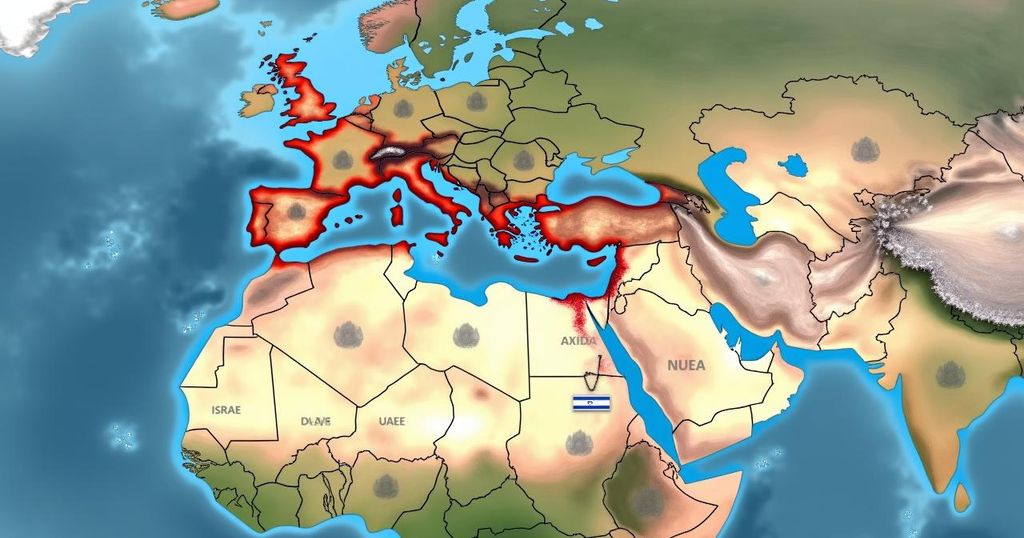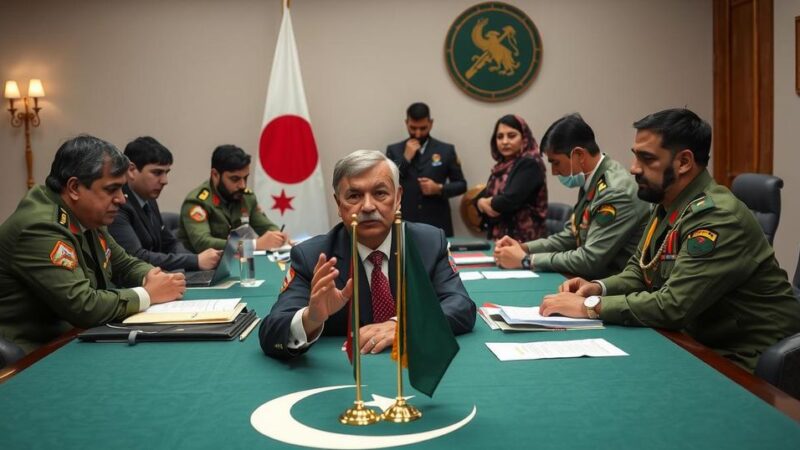Saudi Arabia, the UAE, and Qatar have closed their airspace to Israel to prevent any aggression against Iran, citing concerns over retaliatory strikes on their oil facilities. This decision was communicated to the U.S. amid rising tensions following threats of Israeli attacks and a major missile assault by Iran on Israeli targets. Gulf states aim to maintain regional stability and have expressed apprehension about the potential for increased military confrontation and oil supply disruptions.
Several nations in the Persian Gulf, notably Saudi Arabia, the United Arab Emirates (UAE), and Qatar, have decided to restrict Israel’s access to their airspace as a preventative measure against any potential strikes on Iran. This decision, communicated to the United States, underscores these nations’ concerns over the ramifications of an Israeli assault on Iran, particularly the risk posed to their oil production facilities from possible retaliatory actions by Iran or allied resistance groups. According to a report by Reuters, the aforementioned Gulf states have made it clear that they will not permit Israeli weapons to traverse their airspace. This stance is founded on the apprehension that such actions could escalate into significant military confrontations, affecting not only their national security but also the stability of global oil supplies, especially in light of rising tensions following threats from Israel towards Iran. The backdrop to these developments includes a significant missile attack on Israel by Iran on October 1, dubbed Operation True Promise 2, which involved the launch of approximately 200 ballistic missiles targeting Israeli military and intelligence sites. Iranian sources claimed a success rate of about 90 percent in striking these targets, reinforcing the potential for retaliation should further strikes by Israel occur. Notably, Ali Shihabi, a Saudi analyst affiliated with the royal court, remarked, “The Iranians have stated: ‘If the Persian Gulf states open up their airspace to Israel, that would be an act of war,'” highlighting the gravity of the situation.
The geopolitical dynamics in the Persian Gulf have been fraught with tension, particularly concerning Iran’s nuclear ambitions and Israel’s military posture in the region. In recent months, Israel has issued warnings about possible military actions aimed at Iran, which it views as a significant threat. Concurrently, Iran has reiterated its commitment to respond robustly to any aggression, emphasizing that such conflicts could destabilize the region and affect international oil markets. Gulf states, including Saudi Arabia, the UAE, and Qatar have a vested interest in maintaining stability, given their roles as major oil exporters and their geographic proximity to these hostilities.
In summary, Saudi Arabia, the UAE, and Qatar’s decision to block Israel from utilizing their airspace signifies a strategic move to deter potential Israeli military actions against Iran. This response underscores their concerns over possible repercussions that could destabilize the region and disrupt global oil supplies, thus prompting these states to actively lobby for a restrained approach from the United States towards Israel amid rising tensions. The situation underscores the intricate balance of power and the sensitivities of geopolitical alliances in the Persian Gulf.
Original Source: www.presstv.ir







